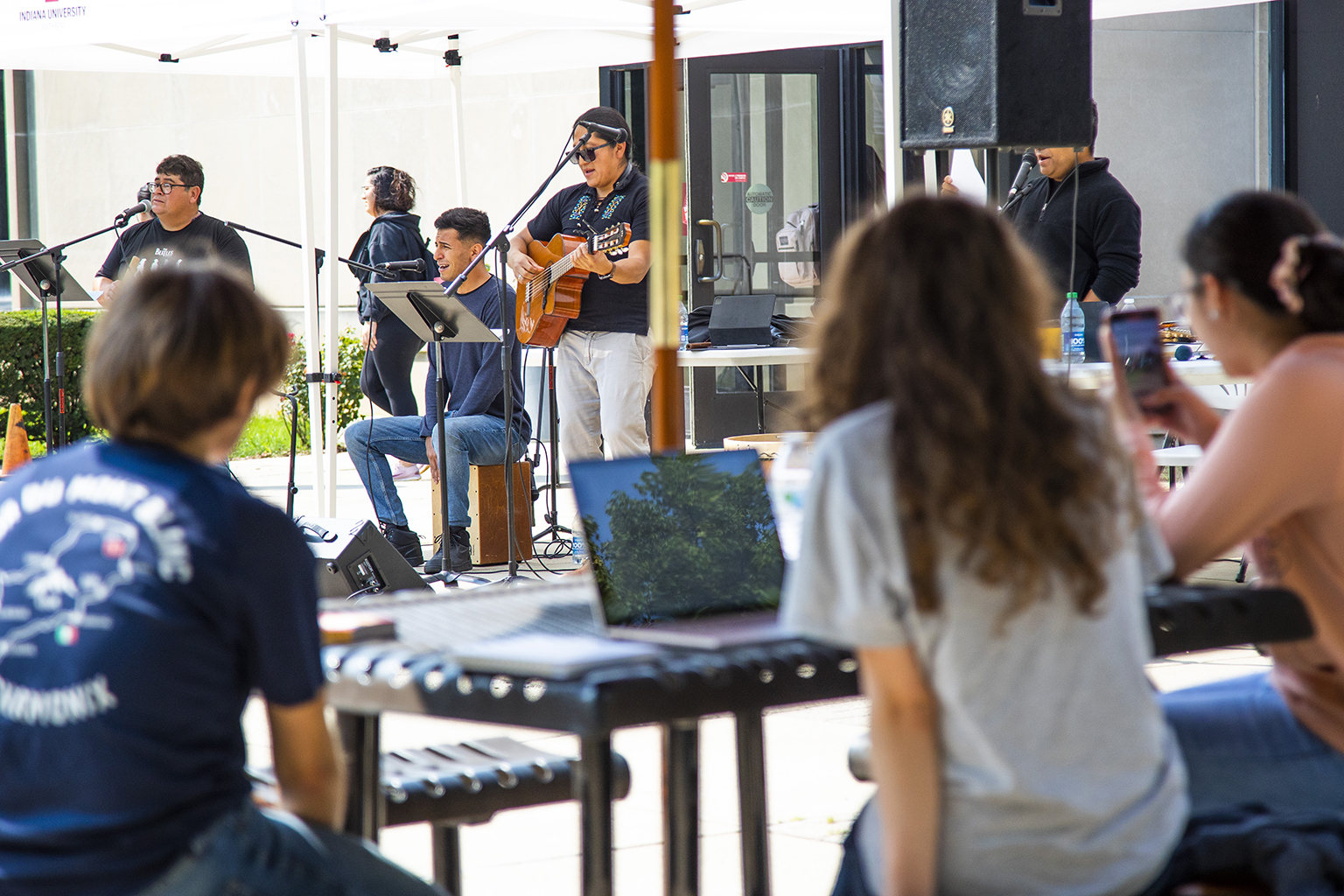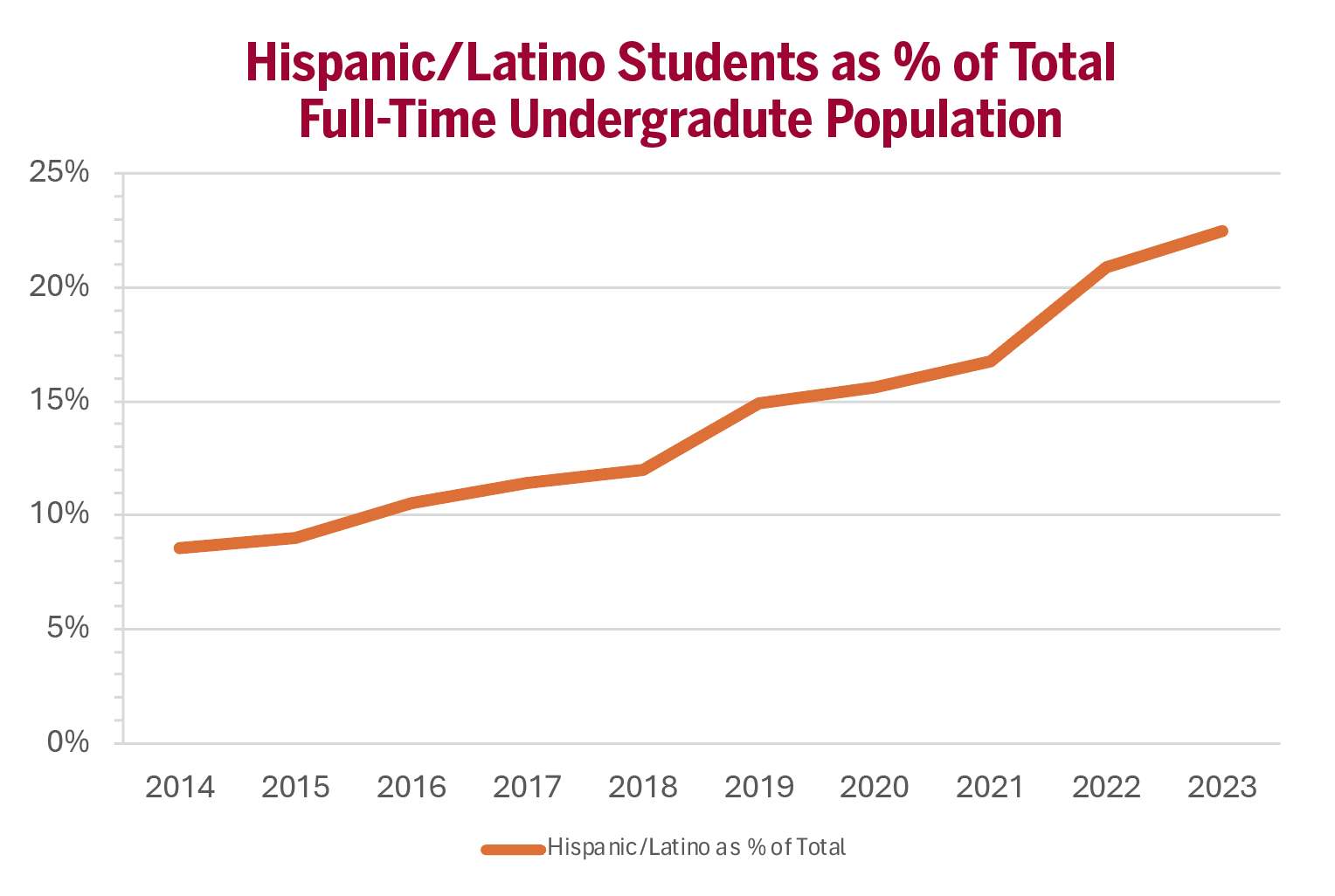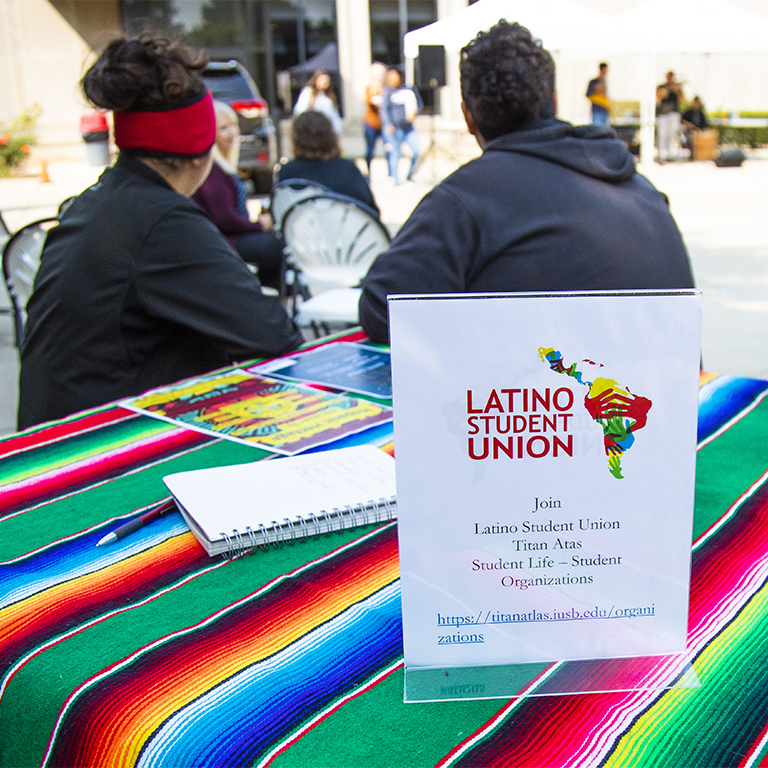Staying on the Course:
Progress towards becoming a Hispanic-Serving Institution
Progress towards becoming a Hispanic-Serving Institution

For the past several years, IU South Bend has been on the cusp of qualifying for the official designation of Hispanic-Serving Institution (HSI). Achieving HSI status is among the top campus strategic priorities and is a central tenet of the school’s broader goals in cultivating an atmosphere that espouses ethical practices and embraces the values of DEI (Diversity, Equity and Inclusion).
An HSI is an accredited, degree-granting, public or private nonprofit institution of higher education with a 25% or higher total undergraduate Hispanic or Latino full-time equivalent student enrollment. IU South Bend’s numbers have been as high as 22.44% (Fall 2023 enrollment), so the goal of 25% or more is well within reach.
22.44% of IU South Bend full-time equivalent undergraduate students were Hispanic or Latino in Fall of 2023.

The American Rescue Plan Act of 2021 allotted $11 billion in funding to Hispanic-Serving Institutions, and in November 2023, President Biden issued a Proclamation designating September 11-17 “National Hispanic-Serving Institutions Week,” and committed another $40 million to the program.
In 2020, IU Northwest became the first IU campus and the first public institution in the state to reach HSI status. Currently, IU South Bend is one of only three institutions statewide to qualify for the Emerging Hispanic-Serving Institutions list, and the only one from the IU system.
In anticipation of imminent HSI accreditation, an HSI Steering Committee comprised of IU South Bend faculty, staff, and students, has been convening on campus, developing a comprehensive plan that will allow the university to maximize HSI grant opportunities and establish student-support structures. The goal is not merely to attain HSI designation, but to make sure all the necessary academic and cultural infrastructure is in place to foster an environment of inclusivity that goes beyond demographic percentage points.
“We are investing the time and showing intentionality, taking an ongoing look at policies and procedures,” said the committee’s co-chair Kory Vitangeli, vice chancellor for student engagement. “Are we working with faculty to make sure more inclusive classrooms happen across campus? How is financial aid impacting the retention of students? What are all the official documents we need to translate into Spanish so that students and their families have a better time acclimating to the university? We want to build a reputation out in the community that we are truly Hispanic serving.”


In a similar spirit, Chancellor Elrod has recently become an affiliate of a national network called Presidents for Latino Student Success (P4LSS) through the research institute and public policy analysis group Excelencia in Education. One of the HSI Steering Committee’s priorities is to attain Excelencia in Education’s special “Seal of Excelencia” designation, which only goes to institutions that not only hit enrollment minimums but go further in serving Latine populations with demonstrable intentionality.
“This partnership expands our capacity to collaborate with similar institutions nationwide as we continue our determined course to achieve the status of a Hispanic-Serving Institution,” Elrod said. “Our commitment to attracting, retaining, and graduating Hispanic and Latine students is unwavering. HSI status will open up enrichment possibilities and access to grants that can only enhance the quality and strength of our programs to the benefit of all our students.”